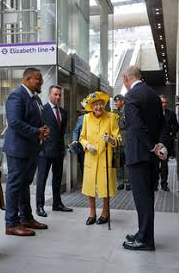
The concluding chapter of the BBC documentary series will air soon after the Elizabeth Line’s long-awaited launch.
The final episode of the documentary series following the long-delayed Elizabeth line project is set to air next month on BBC Two. The Fifteen Billion Pound Railway: Inside The Elizabeth Line, which chronicles the journey of this ambitious railway project, will be broadcast on June 12, just weeks after the line’s official opening.
Filmed over a decade, the documentary captures the challenges faced by engineers, technicians, and transport workers who raced against time to complete the project amid numerous obstacles. Interviews with key figures, including Crossrail’s chief executive Mark Wild, head technician Pradeep Vasudev, and train driver Emma Knowles, will provide an inside look at the creation of this monumental project.
The Elizabeth line, which has cost at least £18.9 billion, spans 75 miles across London and the South East. It is regarded as one of the most significant engineering undertakings in the UK since the era of renowned engineer Isambard Kingdom Brunel. Since its opening on May 24, more than a million journeys have been made on the central section of the line. On its first day, the service saw around 130,000 passengers, with many transport enthusiasts queuing for hours to be on the first trains.
The service is currently divided into three separate sections, with plans to integrate them by autumn. However, the COVID-19 pandemic has impacted passenger demand. Transport for London has revised its initial passenger forecasts, now predicting that annual ridership will reach 170 million by 2026, lower than the 200 million originally expected before the pandemic.
The new central section, which connects Paddington to Abbey Wood, has been built under the Crossrail project. Initially, this section will not operate on Sundays, except during the Platinum Jubilee weekend, as further testing and software updates are carried out.
Crossrail faced numerous delays, including construction challenges and issues with the installation of signalling systems. Originally scheduled for completion in December 2018, the project’s final cost has far exceeded its initial £14.8 billion budget, reaching £18.9 billion.












